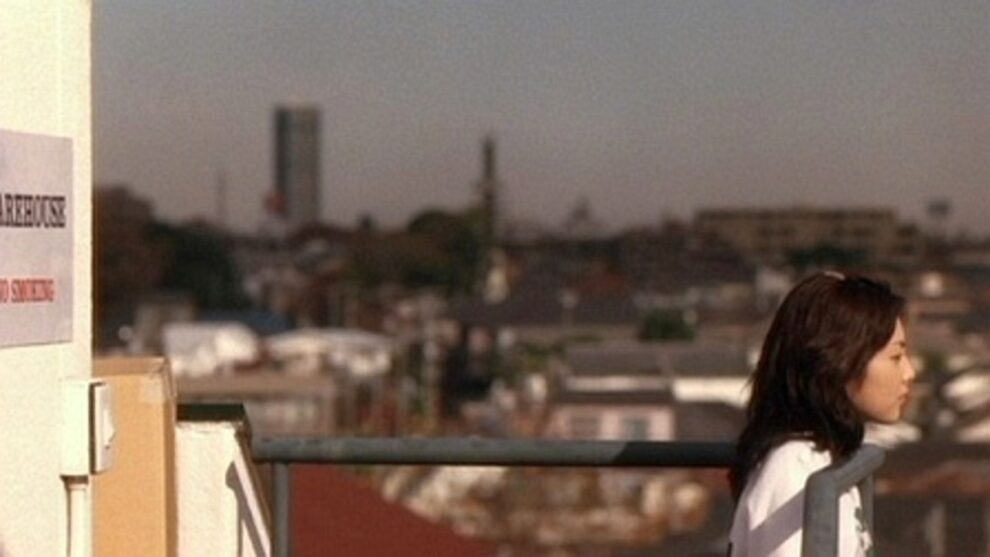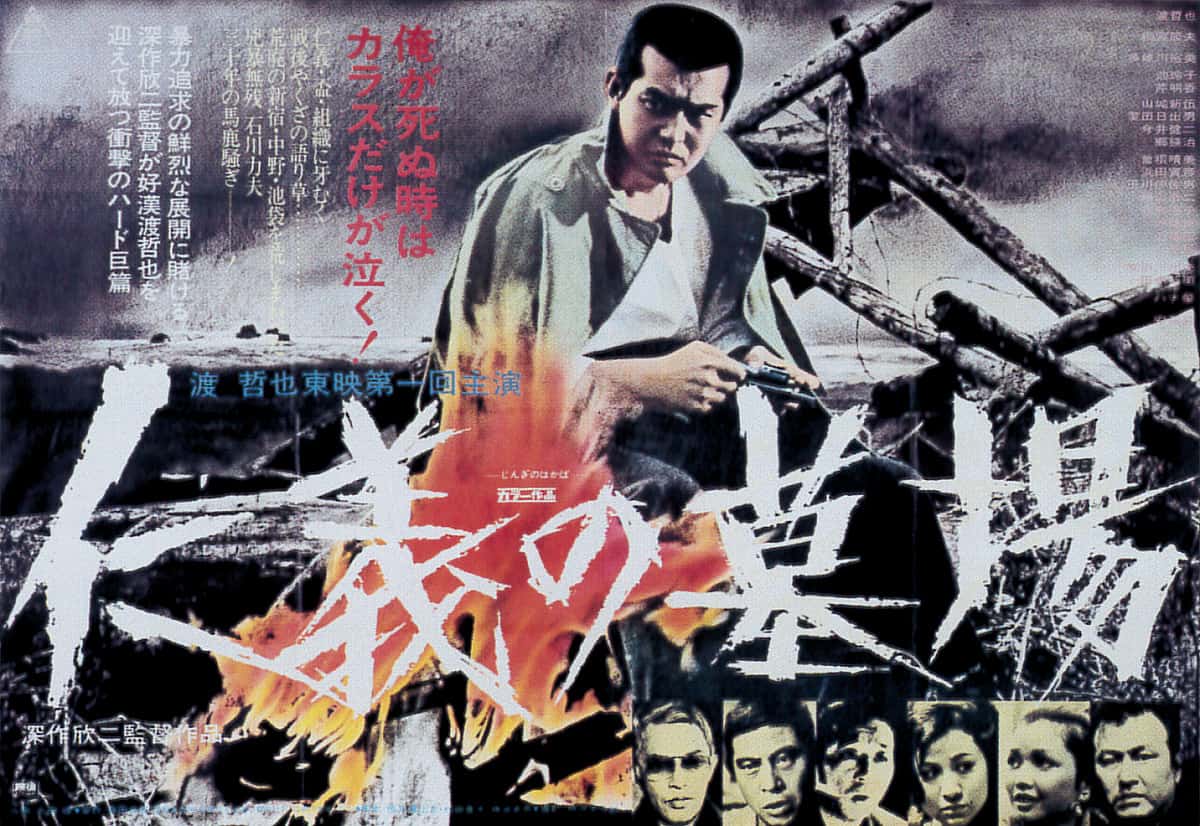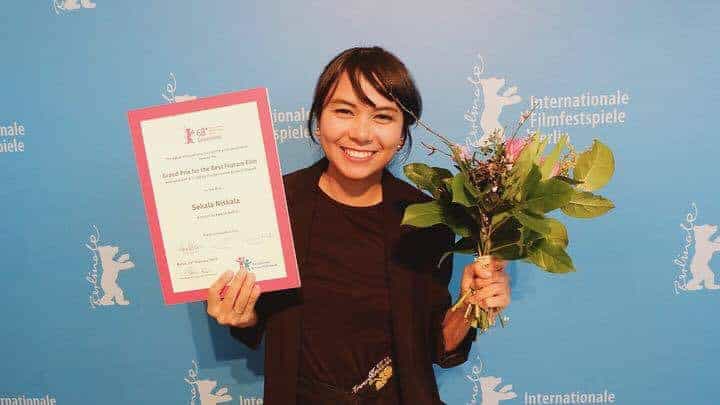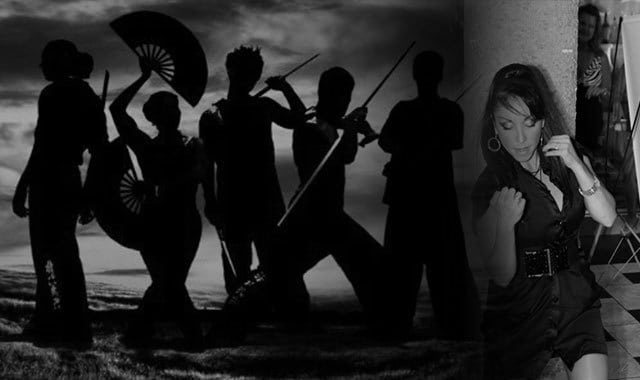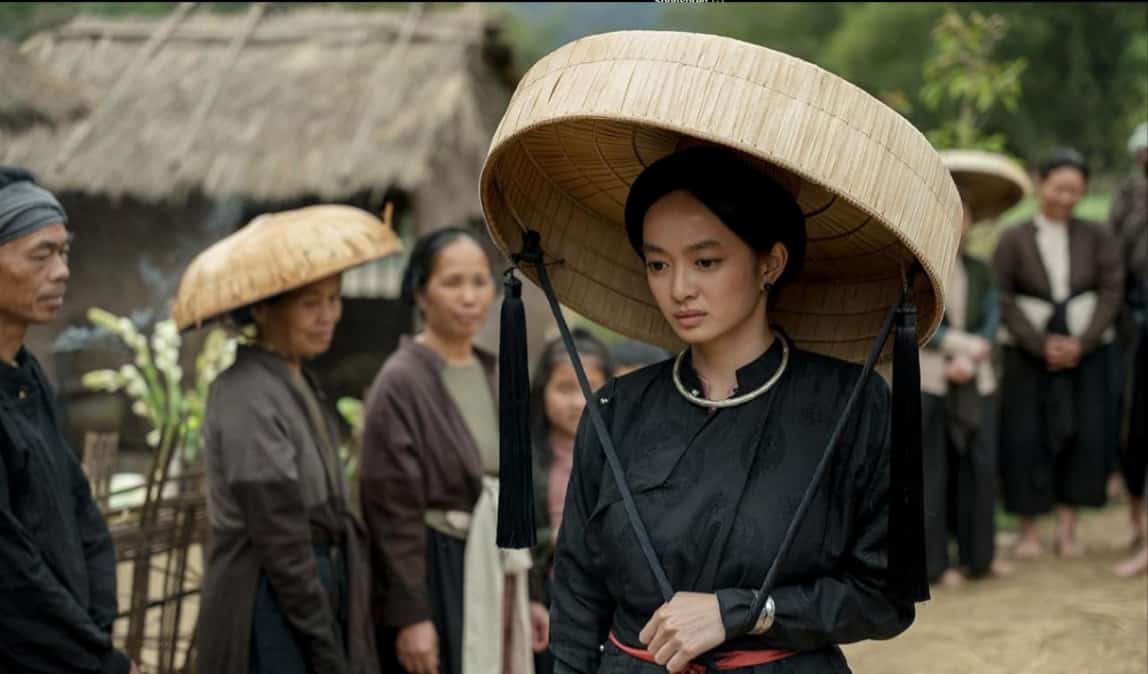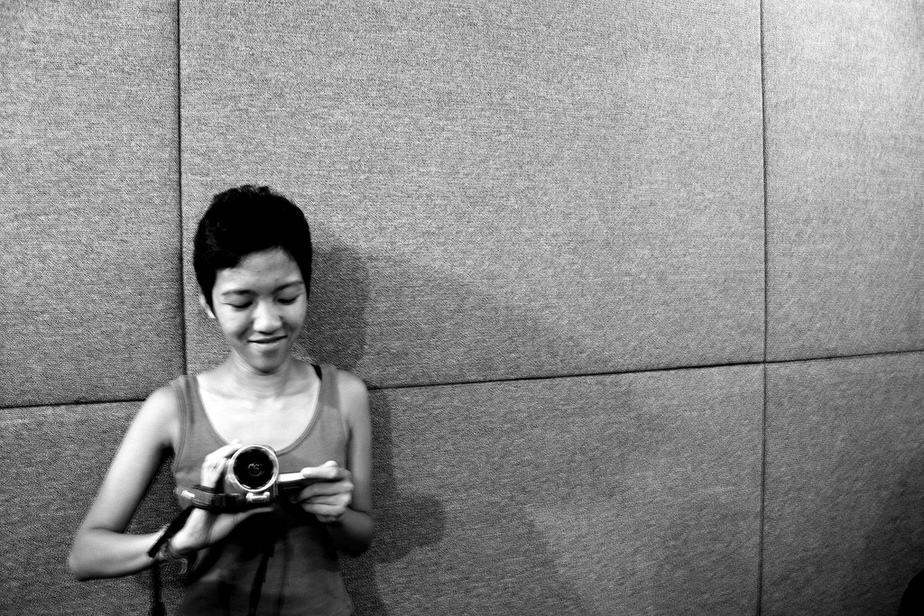While not the strongest film – even within director Jun Ichikawa's oeuvre – 2001's “Tokyo Marigold” is interesting within the context of Japan's ‘lost decades' and the changing face of the metropolis. At the turn of the millennium, the grime and gloom of 90s cinema was replaced by a cleaner, fresher look, as style replaced substance. Clearly a student of Ozu, Ichikawa's Tokyo story shows a Japan of the gloss and sheen of Haruki Murakami novels and MUJI furnished apartments; of upwardly mobile young office workers in doomed, short-term love affairs.
Eriko (Rena Tanaka) is a young woman somewhat lost in adult life, working as a clerk for a car dealership, drifting through her days. Around her, colleagues and friends appear surer of themselves, going places with their lives, offering her friendly advice, job opportunities and chances at love: More exciting work comes when she bumps into an old school friend who asks her to appear in a TV commercial he's working on; while excitement in love comes in the form of Tamura (Yukiyoshi Ozawa) met at a formal dating party organised by a work colleague.
Love soon blooms, but as is the way in the professional world, what's on the surface is a far cry from what lies beneath. Tamura is already in a relationship – his girlfriend studying abroad for a year. Love has a timeline, and Eriko knows she will soon be replaced.
For a film that moves at a slow, steady pace in perpetual twilight, there is a lot of variety on offer. Ichikawa, an advertising director by trade, mixes music videos and commercials into his tale. Ozuesque fixed, cross-section shots of the pair's love nest are matched with a Shunji Iwai sense of modern youth ennui throughout. The soundtrack whistles along on the breeze, much like Eriko, though darker tones emerge once the relationship becomes sexual.
This is very much modern Tokyo (despite being two decades old now). A Bubble Era spill-off facade of clean streets and skyscrapers are the backdrop to Eriko's wandering mind. This is a Tokyo of minimalism, full of new-build apartments, where coffee shops are the ultimate hangout.
If that's the “Tokyo” of the title, the “Marigold” is the new replacing the old. At the house of her artist mother Ritsuko (Kirin Kiki, approaching the start of her career-defining grandmother figure), her uncle Kunio (Akira Terao) discusses the marigolds in the garden. And this ephemeral flower of short life cycle is the obvious flower of Eriko's very modern scenario: she was merely a substitute where love came with a sell-by date. On realising this, Eriko is once again drifting on the breezy soundtrack.
Combining classic techniques with a contemporary aesthetic, Ichikawa is a director who mixed some of the best elements of Japan's two strongest cinematic periods. Understated as his cinema is, however, Ichikawa's career was perhaps lost between these two worlds.


